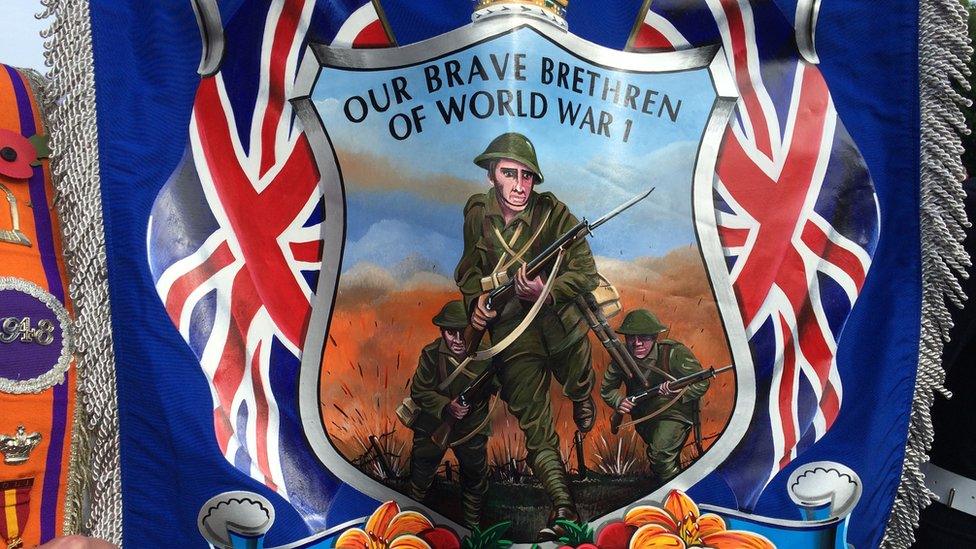Battle of the Somme: The Tyrone family of WW1 Soldiers
- Published
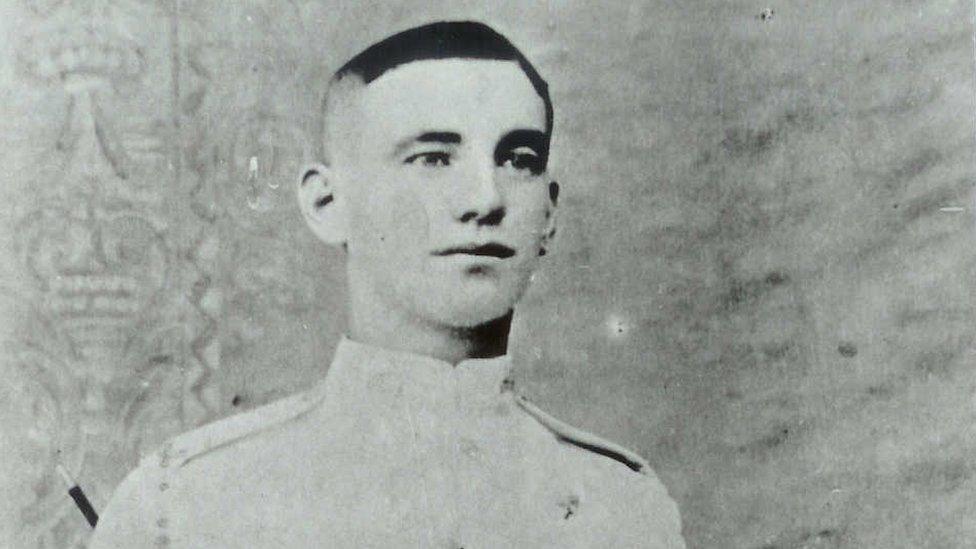
Robert's parents received a letter which started 'Dear Mr and Mrs Lynn, I regret to inform you…'.
The Lynn family, like so many, were devastated by World War One.
Three sons had been killed in action and as a result a desperate bid to bring the fourth back home to the safety of his parents - my great-great-grandparents.
They and their children lived on a farm in Coalisland in County Tyrone.
When the First World War broke out all four of their sons went to fight and the Lynns would never again be together as a family.
Historian Michael Nugent says the Lynns would have been proud to have sons fighting on the front line.
Tragedy first struck in 1915, when their son Robert was on the frontline at Ypres.
His nephew, and my great uncle, Alan Marsh said Robert was a driver in the Royal Field Artillery.
"That was reckoned to be probably the most dangerous job on the western front because he was open to rifle fire from snipers and artillery.
"That's what eventually killed him," he explained.
Robert's parents received a letter which started 'Dear Mr and Mrs Lynn, I regret to inform you…'.
Three more of those letters would follow.
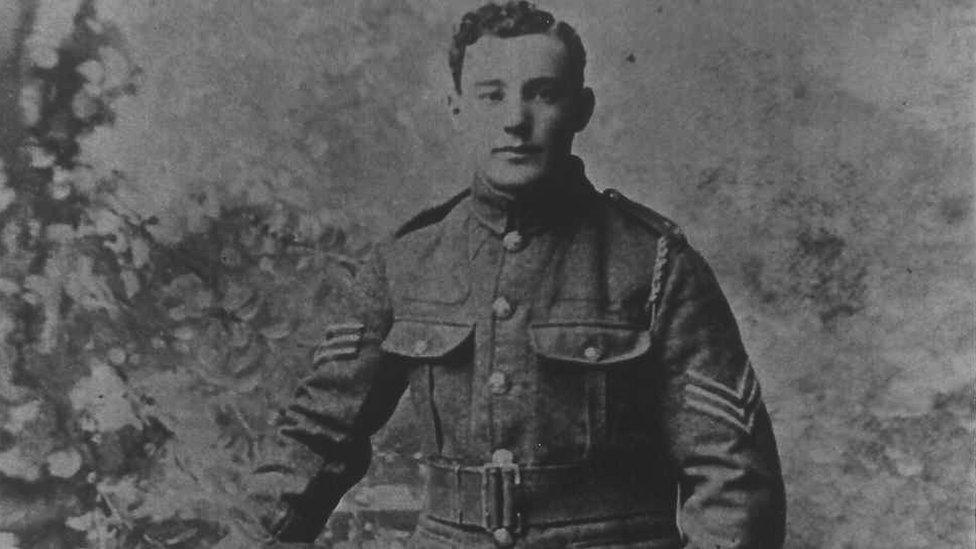
William's comrade said 'he died a hero's death'.
Their youngest son, William, was the next to die, aged just 21 at the Battle of the Somme.
Alan explained: "He was a sergeant in the First Battalion, the Royal Irish Fusiliers.
"William went out to get a stretcher to bring home an injured colleague and was killed by a shell.
"One of William's comrades wrote 'his father and mother would have the consolation he died a hero's death'."
A month later, son number three, Private John Lynn, of the First Battalion the Royal Inniskilling Fusiliers, died in a gas attack on the trenches at Ypres.
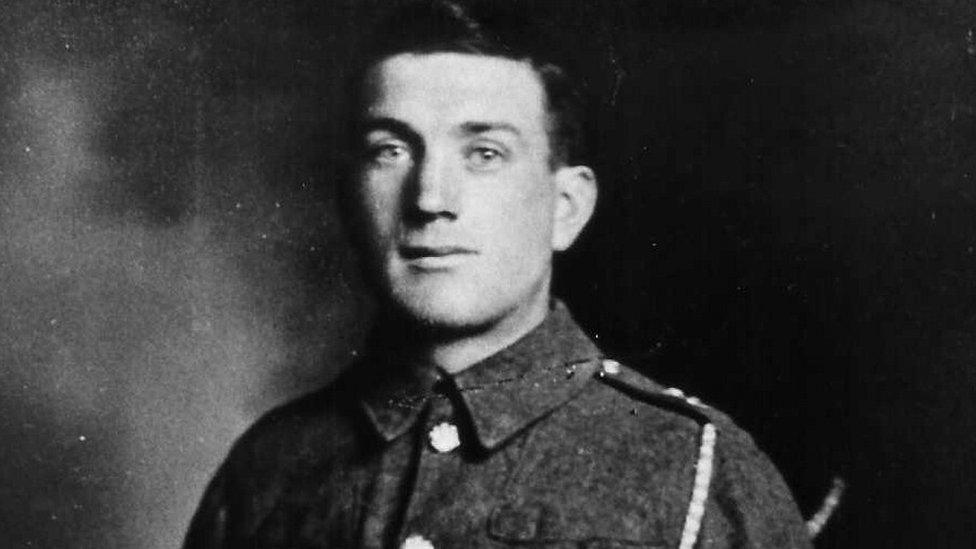
John is buried just a couple of miles away from where his brother Robert lies.
"Forty-nine people, including John, were killed on that day.
He's buried just a couple of miles away from where his brother Robert lies," Alan added.
That left only the oldest son, James Lynn and the War Ministry sent him home to Coalisland in 1917, perhaps feeling the Lynns had given enough.
Alan said: "James didn't stay for very long."
"Possibly soldiering was in his blood. Coalisland probably seemed tame after what he'd experienced, so he re-enlisted."
James was posted to Palestine and in 1920, he became the fourth and final Lynn son to die in active service.
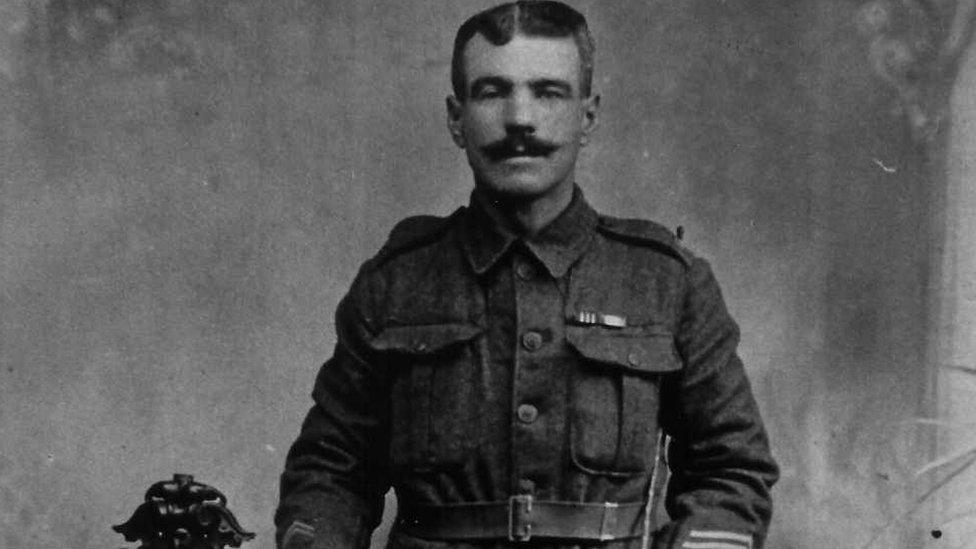
James Lynn was the last of the line of Lynns.
Some of James's final words were captured in a poignant letter to his beloved mother.
Alan said: "Sergeant James Lynn knew that he was not a well man.
He wrote 'Sergeant James Lynn, last of the line' and that indeed was the last of line, for there were no more Lynns."
Their deaths spelt the end of the Lynn surname, but they have not been forgotten.
Lynn is my mum's first name and it is the middle name of some of my relatives.
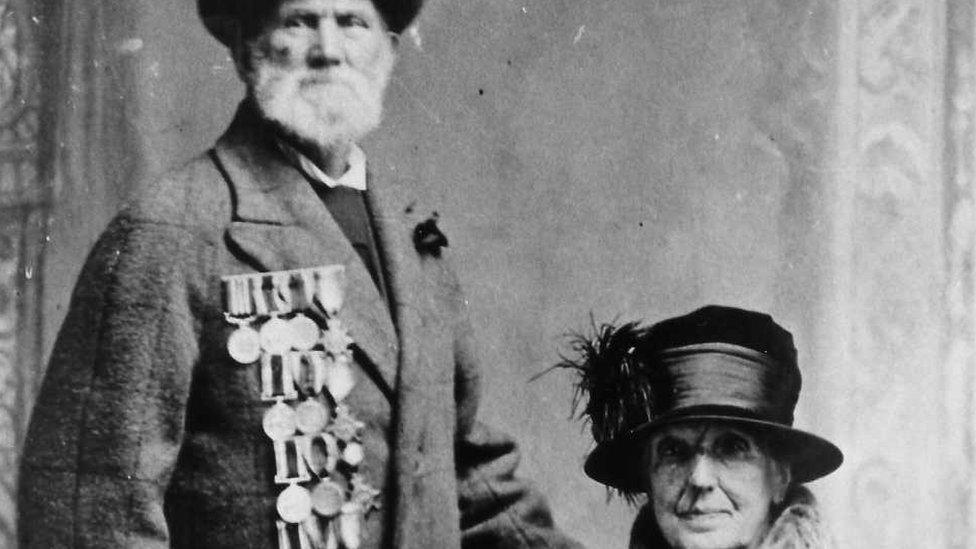
The parents of the Lynn brothers
Each of the sons is buried in a different graveyard and members of my family have laid poppies at their headstones.
"It's always very emotional to visit their graves," said Alan.
"It's a sort of a pilgrimage. In one way, I believe I'm there representing my mother, who was never able to go."
- Published28 June 2016
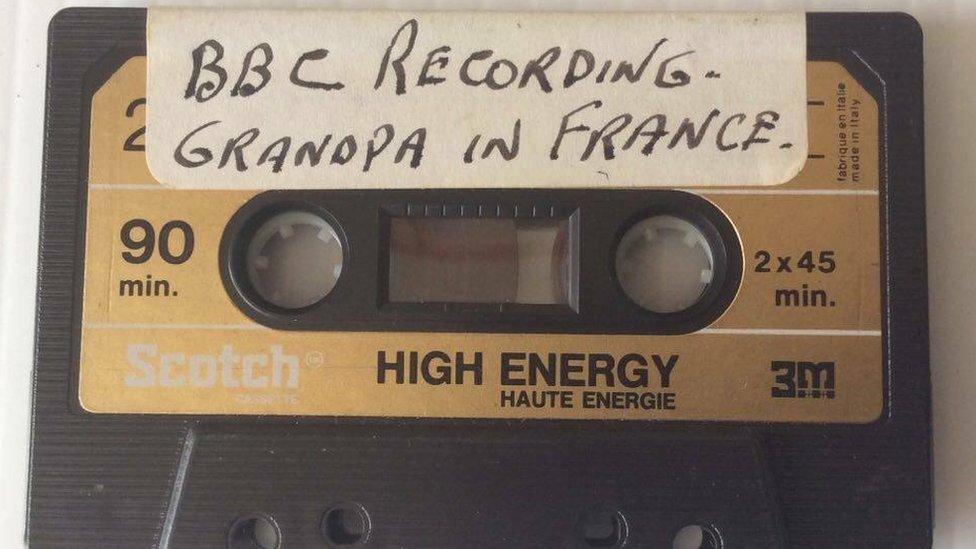
- Published28 June 2016
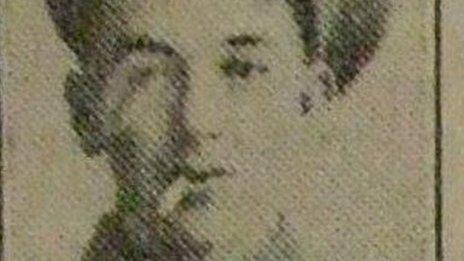
- Published28 June 2016
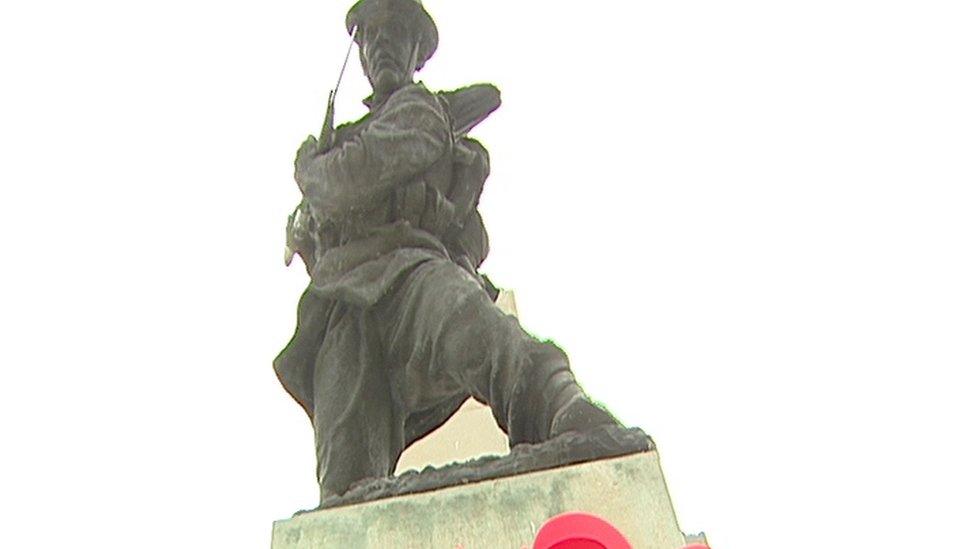
- Published27 June 2016
